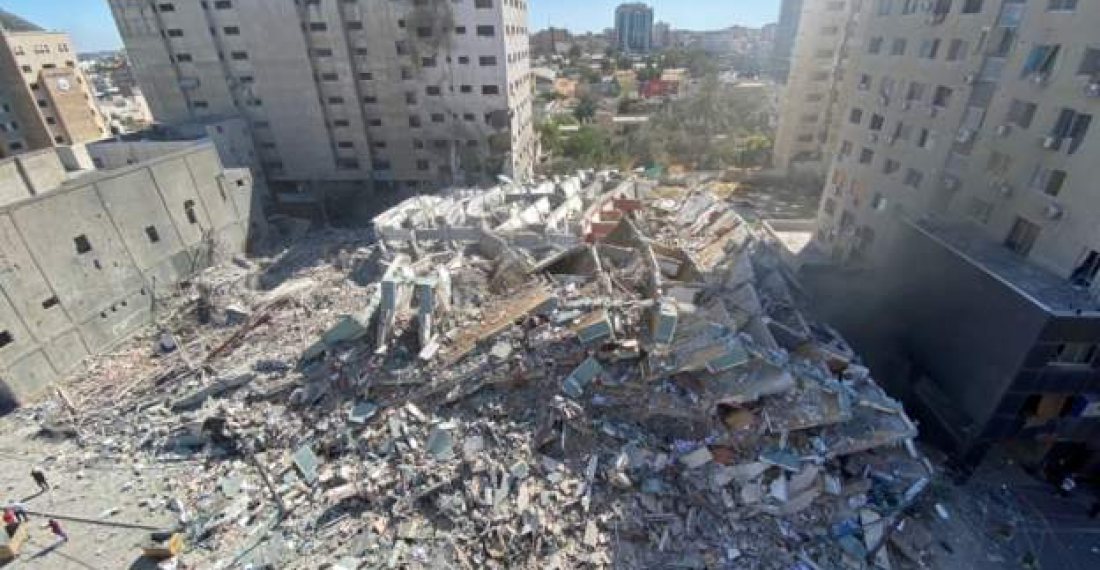The Israeli military have bombed and destroyed a tower block in Gaza which housed international media organisations such as Associated Press and Al Jazeera. This was the latest development in the dramatic escalation of conflict across the Holy Land which has already left hundreds dead and injured Palestinians and Israelis.
The building had been evacuated beforehand after the owner received a warning by Israel in advance of the attack, Reuters news agency says.
In a statement released shortly afterwards, the Israeli military said the building housed military assets belonging to Hamas, the Palestinian militant group that rules Gaza.
Earlier, at least 10 people were killed, including children, in a strike on a refugee camp in Gaza, according to officials. Hamas has fired dozens of rockets at cities in Israel, killing one man near Tel Aviv.
Israel's claims that the tower block housed "military assets" belonging to the Hamas militant group, has been denied by the building's landlord who said that it only housed media organisations and business offices, as well as sixty residential flats.
Saturday is the day when Palestinians commemorate what they call al-Nakba, or the catastrophe, when Israel came into being in 1948.
A statement from the president and CEO of Associated, Gary Pruitt said:
"We are shocked and horrified that the Israeli military would target and destroy the building housing AP’s bureau and other news organizations in Gaza. They have long known the location of our bureau and knew journalists were there. We received a warning that the building would be hit.
We are seeking information from the Israeli government and are engaged with the US State Department to try to learn more.
This is an incredibly disturbing development. We narrowly avoided a terrible loss of life. A dozen AP journalists and freelancers were inside the building and thankfully we were able to evacuate them in time.
The world will know less about what is happening in Gaza because of what happened today."
White House Press Secretary Jen Psaki tweeted:
"We have communicated directly to the Israelis that ensuring the safety and security of journalists and independent media is a paramount responsibility."
Akiva Eldar, a columnist for the online media outlet covering the Middle East Al Monitor in Jerusalem, has told the BBC how he sees the conflict unfolding over the coming days and weeks.
"The question is not just a military one, how do you finish attacking Gaza, striking Gaza, dropping more bombs. I think it's now a question [of] who will get a victory image. It seems that the Israeli decision makers are happy with the images of the Hamas tunnels being bombed and the number of Hamas activists being eliminated.
For Hamas I think, the victory image is what's happening in Israel proper. They have managed to do what all Arab countries and the PLO [Palestinian Liberation Organization] headed by legendary Yasser Arafat have not managed to do, which is to unite the Palestinians in Israel, the West Bank, Gaza and around the world against Israel.
They have managed to send Israelis to shelter and to hide for almost a week, and we're talking now about an attrition war."






